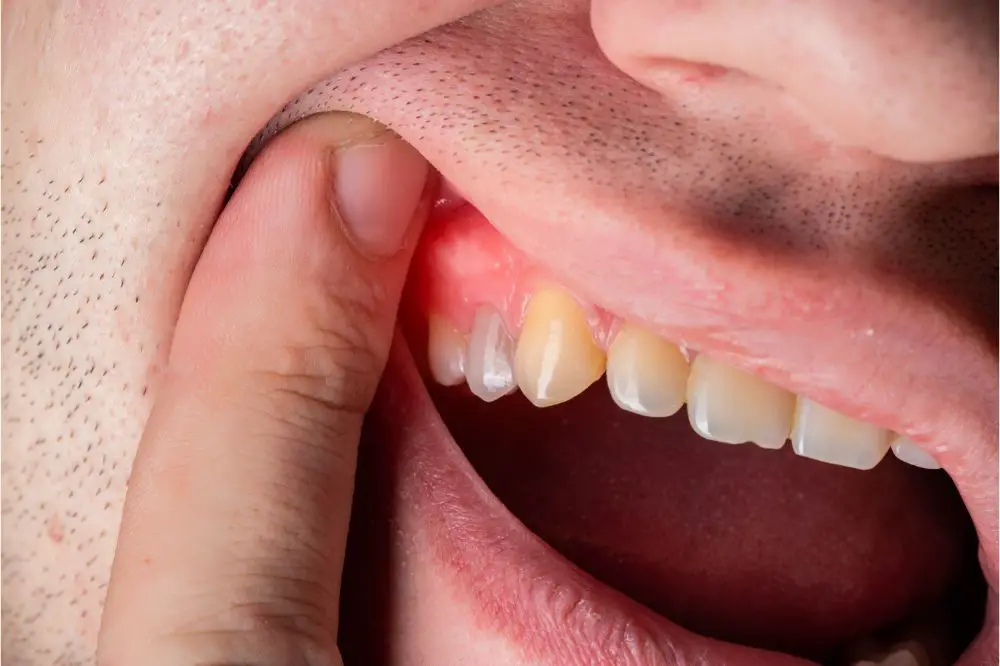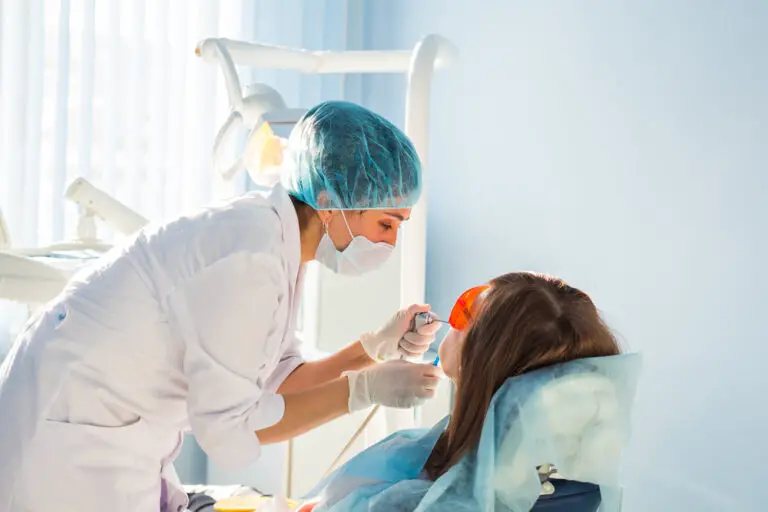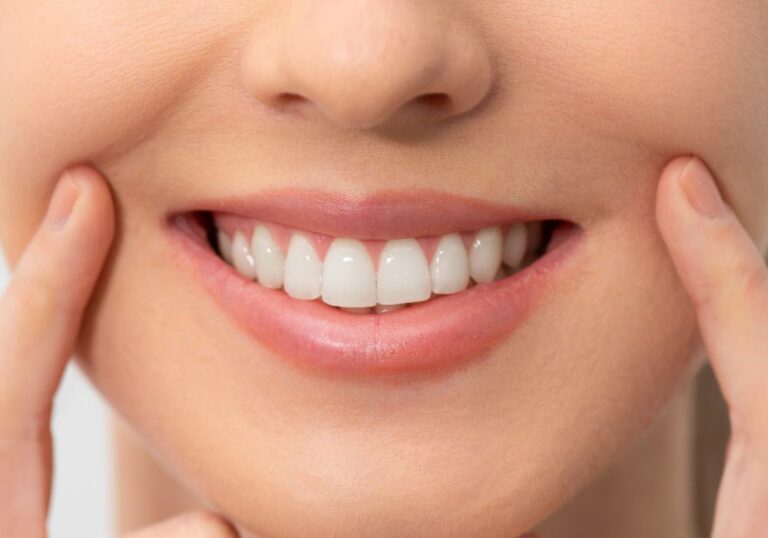Few dental conditions are more unpleasant than abscesses, and if one bursts in your mouth, it can be both alarming and painful. It’s much better to see a dentist before it reaches this point, but sometimes it can occur because we don’t spot the abscess in time.
If this happens to you, the recommended action is to see a dentist as soon as you can, but even before this, there are certain actions you need to take – and to help you understand what they are, in this post we explain what to do if a dental abscess bursts on its own.
If you want to learn more about dental abscesses and get a preview of some of the things we’re going to be talking about, you can also watch this video before reading on.
What to Do if a Dental Abscess Bursts on Its Own The short answer
If you’re reading this because you have an abscess that’s just bust, you’re probably not interested in reading about a lot of theory – so let’s get straight to the point. Then, if you want to learn more about abscesses, you’ll find more info below.
So what should you do?
Here are the steps to follow:
Step 1. Remain calm
The first thing to remember if an abscess bursts spontaneously in your mouth is to remain calm.
It might be an upsetting experience and you may be in some pain or discomfort, but by remaining calm and in control of the situation, you will be able to take the necessary actions to resolve the immediate issues.
Step 2. Rinse your mouth
Mix up a saline solution consisting of one teaspoon of salt in a glass of lukewarm water and use it to rinse your mouth. It’s important to make sure the water is only lukewarm but not hot.
Swill the solution around in your mouth for around 30 seconds and then spit. Repeat the process two or three times to make sure your mouth is clean and the abscess has been disinfected by the saline solution.
Step 3. Manage the pain and swelling
After the abscess bursts, you may experience some pain or swelling, so your next concern should be to manage this.
The best way to do this is to apply a cold compress to the outside of your cheek where the abscess burst. This will help reduce the pain and swelling.
If the pain is more intense, you can also help to alleviate it by taking over-the-counter painkillers like ibuprofen. However, make sure you don’t take more than the recommended dose as explained on the package.
Step 4. Book an emergency appointment with a dentist
A burst abscess is considered a dental emergency, so your next step should be to book an appointment with a dentist at the earliest possible opportunity. Preferably, you should see a dentist the same day – or the next day at the latest.
If you’re finding it difficult to speak, you can ask somebody else to book the appointment for you.
Step 5. Continue to keep your mouth clean
Hopefully, you will be able to see a dentist very quickly, but in the meantime, you will need to ensure your mouth remains clean.
Continue to brush at least twice a day and preferably after meals too. You should also floss once a day.
Be careful when brushing around the site of the abscess so as not to irritate it further.
You should also use an antimicrobial mouthwash – or a saline solution if you don’t have mouthwash – to prevent the abscess from developing further infection.
Also, it’s highly recommended that you avoid smoking or drinking alcohol until after you have seen a dentist.
What is a dental abscess?
So now we’ve discussed the procedure you need to follow if an abscess bursts in your mouth, we can talk in a bit more detail about abscesses.
Let’s start at the beginning – what is a dental abscess?
A dental abscess is an infection of the mouth, face, jaw or throat that may begin as an infection in a gum, a tooth or a cavity. After the infection starts, the abscess will develop into a painful pocket of pus that is at risk of bursting in your mouth.
They are most common in people with poor dental health, and taking care of your teeth by brushing and flossing regularly can help prevent them from occurring.
Generally speaking, there are three types of dental abscess:
- Periapical
This is the most common type of dental abscess and occurs when bacteria infect the pulp inside a tooth.
- Periodontal
This kind of abscess occurs when bacteria infect the gums.
- Gingival
This is the name given to an abscess caused by something like a food particle or a piece of broken tooth becoming stuck in the gum. This type of abscess can be extremely painful.
An important point to bear in mind is that dental abscesses don’t heal by themselves, so if you suspect you have one, you shouldn’t put off booking an appointment with a dentist because the quicker you have it looked at, the easier it will be to heal.
So what are the symptoms?
What are the symptoms?

Here are some of the most common symptoms that may suggest you have a dental abscess:
- Pain or tenderness
- Oral swelling or gum inflammation
- General discomfort in the mouth area
- Redness of the mouth and face
- A bad taste in the mouth
- Sensitivity to hot or cold foods or liquids
- Pus
- Bad breath
- Difficulty fully opening your mouth or swallowing
- Swollen glands in your neck or upper or lower jaw
If you experience any of these symptoms, you should book an appointment with your dentist to get it checked out.
The last of these in particular is a serious symptom, and if you experience swollen glands, you should book an appointment as a matter of urgency.
If the abscess is not diagnosed early, more serious symptoms may develop. They can include the following:
- Nausea
- Vomiting
- Fever
- Chills
- Diarrhea
These symptoms may indicate that the infection is more advanced, so if you experience any of them, you should see a dentist as a matter of urgency.
You should also consider seeking emergency medical assistance if the symptoms are particularly severe or if you can’t see a dentist.
What are the causes of dental abscesses?
Abscesses may form as the result of several causes, but in general, they are a sign of poor dental health and oral hygiene.
They may develop if you have untreated cavities, in which case bacteria can enter a tooth and infect the pulp inside.
Bacteria in a cavity can spread into the gums and from there can reach the cheek, the throat, beneath the tongue or even the jaw or facial bones when left untreated.
Bacteria may also enter the gums directly, particularly when something gets stuck in the gum.
The initial bacterial infection is often a result of poor dental hygiene, including a failure to brush or floss regularly. Smoking, drinking or eating a poor diet are also factors that can put you at higher risk of developing abscesses.
How to avoid dental abscesses
The best way to avoid developing a dental abscess is to always follow good dental hygiene practices such as brushing regularly and flossing.
You should also book regular check-ups with your dentist because this way, the dentist will be able to diagnose and treat problems such as cavities early before they develop into anything more serious like dental abscesses.
Treatment of a dental abscess
Treatment of an abscess will depend on the severity of the abscess and how far it has developed.
In some cases, a dentist will simply need to drain the pus and then treat the infection through the prescription of antibiotics.
However, if the abscess is more developed, the dentist may need to treat it with additional procedures, which may include root canal treatment or scaling and root planing.
FAQs
Is it serious if an abscess bursts on its own?
If a dental abscess bursts in your mouth on its own, it should be treated as a medical emergency, and you should see a dentist at the earliest opportunity.
However, in most cases, despite the alarming nature of a burst abscess and the possibility of some accompanying pain, it isn’t a life-threatening condition, so there’s no need to panic.
What can cause a dental abscess to burst on its own?
When an abscess is filled with pus, it can burst when you are eating or brushing your teeth – or even when you pass your tongue over it in your mouth.
What can happen if a dental abscess is left untreated?
Dental abscesses can lead to serious complications if left untreated, and the infection can spread to the jaw, neck and head. It can also lead to sepsis, a generalized infection that spreads throughout your body.
Untreated abscesses can also cause swellings in the neck that may make it hard to breathe.
Don’t panic, deal with the immediate problem and then contact a dentist
As we mentioned above, if you have a dental abscess that bursts in your mouth, the first thing to do is remain calm. After this, you need to deal with the abscess by cleaning your mouth and managing any pain – after which, you should see a dentist as soon as you can.






